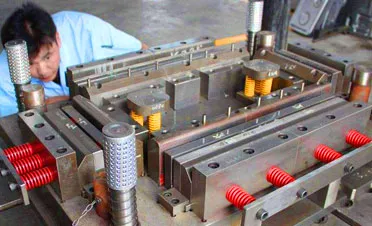Understanding the Significance of Precision Casting in Modern Manufacturing Techniques
Understanding Precision Casting Techniques and Applications
Precision casting is a modern manufacturing process that has gained significant traction across various industries, from aerospace to automotive, due to its ability to produce high-quality, intricate parts with exceptional accuracy. This article aims to elaborate on the meaning of precision casting, the techniques involved, its advantages, and the diverse applications in which it plays a crucial role.
Definition of Precision Casting
At its core, precision casting refers to a set of manufacturing techniques that enable the creation of metal components with tight tolerances and intricate geometries. Unlike traditional casting methods, which may result in rough geometries, precision casting involves advanced processes that ensure the final product closely resembles the intended design. This is achieved through the use of modern materials and technologies, reducing the need for extensive secondary machining.
Techniques in Precision Casting
Several casting methods can be classified under precision casting, including investment casting, lost foam casting, and ceramic shell casting.
1. Investment Casting Also known as lost-wax casting, this method involves creating a wax model of the desired part, which is then encased in a ceramic material. Once the ceramic material hardens, the wax is melted away, leaving a precise mold. Molten metal is then poured into the mold, resulting in highly detailed and accurate components.
2. Lost Foam Casting In this method, a foam pattern is used instead of wax. The foam evaporates when molten metal is poured in, creating a cavity in the shape of the desired component. This technique allows for complex shapes and reduces the need for finishing processes.
3. Ceramic Shell Casting Similar to investment casting, ceramic shell casting utilizes a ceramic shell mold. However, it often involves multiple layers of the ceramic coating to enhance the strength and durability of the mold, allowing for high precision and surface quality.
Advantages of Precision Casting
Precision casting offers a host of benefits that set it apart from conventional casting methods.
1. High Accuracy and Tolerance One of the standout features of precision casting is its ability to produce parts with tight tolerances, which is critical in industries like aerospace and medical devices where precision is paramount.
precision casting meaning

2. Complex Geometries Precision casting allows manufacturers to create intricate designs that might be challenging or impossible to achieve through other methods. This flexibility leads to lightweight and optimized structures, ultimately improving product performance.
3. Material Efficiency The reduction in material waste during the casting process contributes to lower production costs. Moreover, precision casting can minimize the need for further processing, enhancing overall efficiency.
4. Improved Surface Finish The quality of the surface finish obtained through precision casting reduces the need for secondary operations, which can further cut costs and save time.
Applications of Precision Casting
The versatility of precision casting enables its application across a wide range of industries.
1. Aerospace Industry Precision casting is widely used to manufacture components such as turbine blades, structural components, and fittings where accuracy and weight are critical considerations.
2. Automotive Industry The automotive sector uses precision casting for producing engine components, transmission housings, and complex parts that contribute to better fuel efficiency and performance.
3. Medical Devices As the healthcare sector increasingly requires advanced technologies, precision casting is utilized in creating intricate surgical tools, implants, and other high-performance medical components.
4. Electronics In the electronics industry, precision casting is employed to manufacture housings and components that require a high degree of precision to function effectively.
Conclusion
Precision casting represents a significant advancement in manufacturing technology, enabling the production of complex and highly accurate parts that meet modern industrial demands. With its numerous advantages, including high tolerance, complex geometries, and material efficiency, it has become a critical process in various sectors. As industries continue to evolve, the relevance and applications of precision casting are likely to grow even further, cementing its place as a cornerstone of modern manufacturing.
-
Crawler Drilling Rig - Baoding Hairun|Confined Space Drilling&Mine SafetyNewsAug.15,2025
-
Drill For Confined Spaces-Crawler Mounted Drill Rig | Crawler Drill Rig for SaleNewsAug.15,2025
-
Premium OEM Auto Parts & Stamping - Reliable ManufacturersNewsAug.15,2025
-
Crawler Drilling Rig for Confined Spaces-Baoding Hairun MachineryNewsAug.15,2025
-
Drill For Confined Spaces - Baoding Hairun Machinery And Equipment Trading Co., Ltd.NewsAug.15,2025
-
Advanced Crawler Drilling Rig - Baoding Hairun Machinery | Underground Mining SolutionsNewsAug.14,2025















